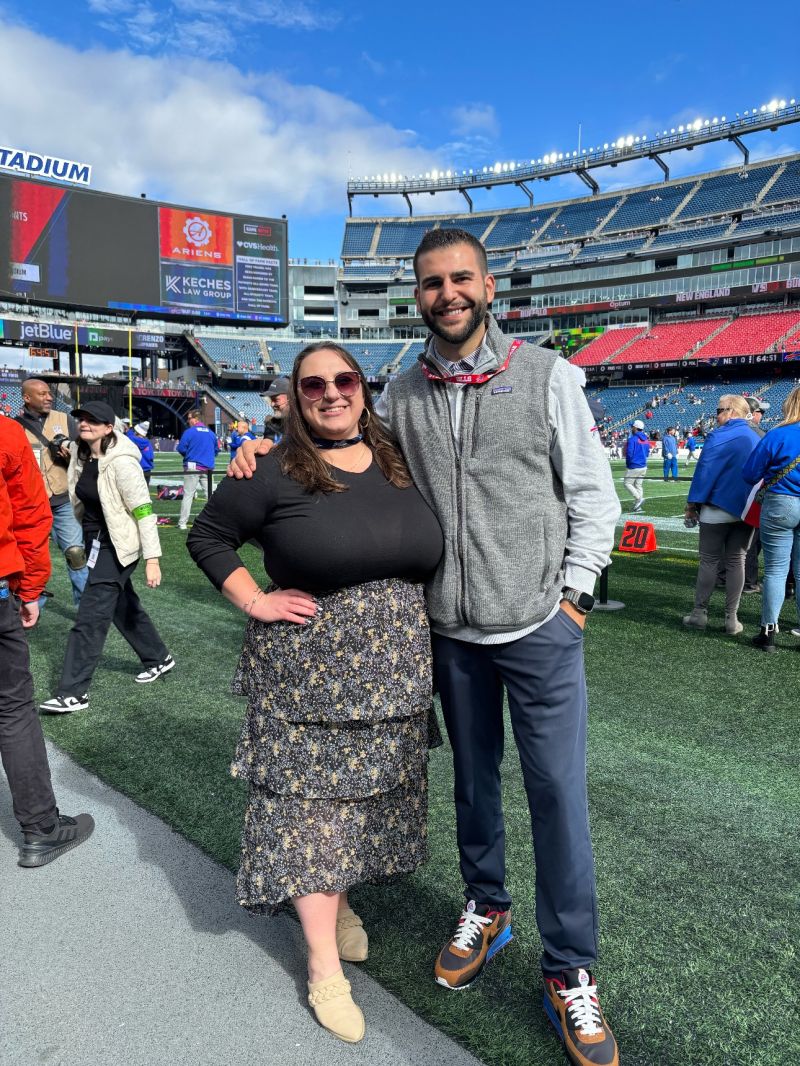Williams Syndrome Famous People: Celebrating Unique Talents and Contributions

Williams Syndrome Famous People, a rare genetic disorder that affects approximately 1 in 10,000 people worldwide, is characterized by distinct facial features, cognitive challenges, and a remarkable affinity for music and social interaction. Despite its relatively low prevalence, individuals with Williams Syndrome have managed to leave an indelible mark on various fields, showcasing their unique talents and reminding the world of the power of diversity.
Understanding Williams Syndrome: A Brief Overview
Williams Syndrome is caused by a deletion of a small segment of chromosome 7, affecting around 25 genes. This genetic alteration leads to a range of physical and intellectual differences, including cardiovascular issues, developmental delays, and an increased inclination toward social engagement.
One of the most intriguing aspects of Williams Syndrome is the juxtaposition of cognitive difficulties and exceptional musical and social skills. While individuals with this syndrome may struggle with tasks such as spatial awareness and numerical processing, they often exhibit unparalleled musical talents, an affinity for language, and a natural inclination to connect with others on a deeply empathetic level.
Famous Figures with Williams Syndrome: Shaping Diverse Arenas
Despite the challenges they face, many individuals with Williams Syndrome have managed to excel in various domains, leaving a lasting impact on society. Some of the most notable figures include:
- Jacqueline Dupree: A gifted cellist, Jacqueline Dupree demonstrated her musical prowess from an early age. Her exceptional ability to interpret and convey emotions through her music captivated audiences worldwide. She played a crucial role in raising awareness about Williams Syndrome and showcasing the incredible musical abilities that often accompany it.
- Nick Padron: Nick Padron, a talented artist with Williams Syndrome, uses his vibrant artwork to communicate his unique perspective and emotions. His vivid and expressive creations have garnered attention from art enthusiasts globally, proving that creativity knows no bounds.
- Christopher Ulmer: An educator and advocate, Christopher Ulmer founded “Special Books by Special Kids,” a platform that shares stories of individuals with disabilities, including Williams Syndrome. Through his work, Ulmer has fostered empathy and understanding, challenging misconceptions and highlighting the abilities and potential of those with Williams Syndrome.
- Elfin Choir: The Elfin Choir, comprised of individuals with Williams Syndrome, showcases their exceptional musical abilities through performances that leave audiences spellbound. Their harmonious voices and genuine enthusiasm for music challenge societal perceptions of what individuals with cognitive differences can achieve.
- Susan Pober: Dr. Susan Pober, a researcher and physician, has dedicated her career to studying Williams Syndrome. Her work has led to a deeper understanding of the genetic basis of the syndrome and has paved the way for potential therapies to improve the lives of those affected.
- Alexandra Jackman: Alexandra Jackman, a filmmaker and advocate, directed the documentary “A World of Difference,” which highlights the lives and experiences of individuals with disabilities, including Williams Syndrome. Through her storytelling, she emphasizes the importance of inclusion and acceptance.
The Gift of Empathy and Connection
Perhaps one of the most remarkable traits of individuals with Williams Syndrome is their profound ability to forge connections and demonstrate unwavering empathy. Their social skills are often unparalleled, as they possess an innate understanding of emotions and an authentic desire to connect with others. This remarkable trait challenges societal norms and encourages a more compassionate and inclusive world.
Challenges and Opportunities
While celebrating the achievements and talents of individuals with Williams Syndrome is essential, it’s also crucial to acknowledge the challenges they face. Cognitive difficulties and medical issues can present significant hurdles in daily life. This underscores the importance of continued research, medical support, and educational initiatives tailored to their unique needs.
Promoting Awareness and Understanding
Raising awareness about Williams Syndrome is pivotal in fostering a society that embraces diversity and inclusivity. By sharing stories of individuals with Williams Syndrome who have made significant contributions, we can challenge preconceived notions and celebrate the potential within every individual, regardless of their genetic makeup.
In Conclusion
The lives and achievements of famous individuals with Williams Syndrome underscore the extraordinary capabilities that can emerge from what may seem like challenges. Through music, art, advocacy, and research, these individuals have left an indelible mark on the world, reminding us that every person has a unique contribution to make. As we continue to celebrate their accomplishments, we pave the way for a more compassionate, empathetic, and inclusive society that values the diversity of human abilities.
Frequently Asked Questions (FAQs) on Williams Syndrome Famous People
1. What is Williams Syndrome?
Williams Syndrome is a rare genetic disorder caused by the deletion of a segment of genes on chromosome 7. It leads to distinctive facial features, cognitive challenges, and a heightened affinity for music and social interaction.
2. Who are some famous people with Williams Syndrome?
Several notable individuals with Williams Syndrome have made significant contributions in various fields. Some examples include cellist Jacqueline Dupree, artist Nick Padron, educator Christopher Ulmer, the Elfin Choir, researcher Dr. Susan Pober, and filmmaker Alexandra Jackman.
3. What makes individuals with Williams Syndrome unique?
Individuals with Williams Syndrome often exhibit a combination of cognitive challenges and exceptional musical and social skills. They possess a remarkable ability to empathize, connect with others, and display talents in areas like music, art, and communication.
4. How does Williams Syndrome affect cognitive abilities?
Williams Syndrome can result in developmental delays and challenges in tasks related to spatial awareness, numerical processing, and problem-solving. However, these individuals often excel in areas such as language, music, and social interactions.
5. How have famous individuals with Williams Syndrome contributed to society?
Famous people with Williams Syndrome have made significant contributions by excelling in their respective fields. They’ve raised awareness about the syndrome, challenged stereotypes, promoted empathy and inclusion, and inspired others through their talents and achievements.
6. What role does music play in Williams Syndrome?
Music holds a special place in the lives of individuals with Williams Syndrome. Many of them exhibit an extraordinary affinity for music, demonstrating exceptional musical skills and emotional expression. Music therapy has also been found to be beneficial for individuals with the syndrome.
7. How can their achievements promote awareness and understanding of Williams Syndrome?
The achievements of famous individuals with Williams Syndrome shed light on the capabilities and potential of people with the condition. By sharing their stories, we challenge misconceptions, promote inclusivity, and encourage society to appreciate the unique talents that can emerge despite challenges.
8. What challenges do individuals with Williams Syndrome face?
Individuals with Williams Syndrome can face various challenges, including cognitive difficulties, medical issues (such as cardiovascular problems), and social interactions. Tailored educational and medical support is essential to help them overcome these challenges.
9. How can society benefit from embracing individuals with Williams Syndrome?
Embracing individuals with Williams Syndrome and valuing their unique abilities contributes to a more diverse and empathetic society. By recognizing and appreciating the talents and strengths of all individuals, regardless of their genetic makeup, we foster a culture of inclusion and understanding.
10. How can I support individuals with Williams Syndrome?
Support can come in various forms, such as promoting awareness and understanding, advocating for inclusive education and opportunities, participating in fundraisers for related organizations, and simply treating individuals with Williams Syndrome with respect and empathy.
11. Are there ongoing research and medical advancements related to Williams Syndrome?
Yes, research into Williams Syndrome is ongoing. Medical professionals and researchers are working to better understand the genetic basis of the condition, develop targeted therapies, and provide resources that improve the quality of life for individuals with Williams Syndrome.
12. What are some organizations dedicated to Williams Syndrome advocacy?
Several organizations, such as the Williams Syndrome Association and Special Books by Special Kids, are dedicated to raising awareness, providing support, and advocating for individuals with Williams Syndrome and their families. These organizations offer resources, information, and opportunities for involvement.




